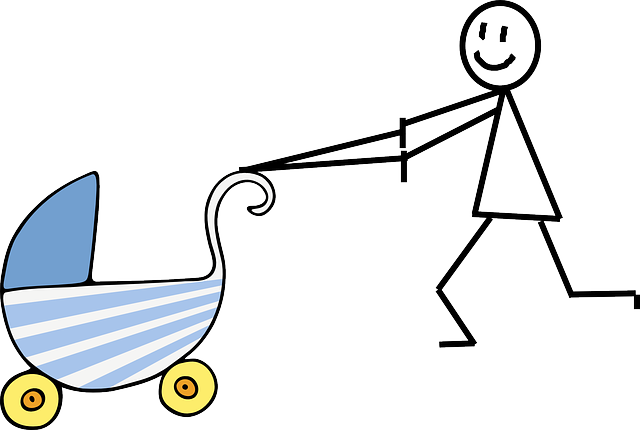Co-parenting disputes arise from emotional situations like differing parenting styles and unequal responsibilities. Triggers include work schedule changes, new relationships, or discipline disagreements. A structured co-parenting plan, created with legal aid from a co-parenting or parental alienation lawyer, can significantly reduce conflicts. This includes shared custody arrangements, clearly defined parenting time schedules, professional parental guidance, and mediation services. Legal support protects parental rights, prioritizes children's best interests, and creates plans for healthy communication and minimal conflict, ultimately benefiting the child's well-being. Parental alienation, a harmful practice damaging emotional growth, requires legal intervention to resolve disputes and protect relationships.
“Navigating the complex world of co-parenting can be a challenging and often emotional process. When conflicts arise regarding parenting time, decision-making, or even parental alienation, it’s crucial to seek expert assistance. This article provides an in-depth guide to resolving such disputes. We explore common triggers, from scheduling disagreements to more severe cases of parental alienation, offering insights into the role of a co-parenting lawyer and strategies for creating a successful co-parenting plan. Understanding your parental rights and available legal guidance is essential for fostering a healthy shared custody arrangement.”
- Understanding Co-Parenting Disputes: Common Issues and Triggers
- The Role of a Co-Parenting Lawyer in Navigating Complexities
- Strategies for Creating a Successful Co-Parenting Plan
- Parental Alienation: Identifying, Addressing, and Seeking Legal Guidance
Understanding Co-Parenting Disputes: Common Issues and Triggers

Co-parenting disputes often arise from complex and emotionally charged situations, with common issues including differences in parenting styles, unequal sharing of responsibilities, and conflicts over major decisions regarding the child’s upbringing. Parental alienation, where one parent deliberately damages the relationship between the child and the other parent, is another significant concern. These disputes can be triggered by a variety of factors, such as changes in work schedules, new romantic partnerships, or disagreements about discipline methods.
In many cases, a well-structured co-parenting plan, created with the assistance of a co-parenting lawyer or mediator, can help mitigate these conflicts. Shared custody arrangements and parenting time schedules that are clearly defined and mutually agreed upon can reduce tension. Additionally, parental guidance from a qualified professional can equip parents with effective strategies for communication and conflict resolution, fostering a healthier co-parenting relationship and ultimately benefiting the child’s well-being.
The Role of a Co-Parenting Lawyer in Navigating Complexities

When faced with complex co-parenting disputes, involving issues like parental alienation or disagreements over a co-parenting plan, seeking expert legal support is crucial. A specialized co-parenting lawyer plays a pivotal role in navigating these intricate matters, ensuring fairness and the best interests of the children are at the forefront. They offer invaluable co-parenting support and guidance, helping parents establish or modify a co-parenting plan that facilitates healthy communication and minimalized conflict.
These legal professionals possess in-depth knowledge of state laws pertaining to parental rights and parenting time, enabling them to advocate for their clients’ interests during mediation or court proceedings. They can assist in resolving contentious issues such as visitation schedules, shared custody arrangements, and even parental guidance in cases where communication breaks down. With their expertise, a co-parenting attorney ensures that both parents are treated equitably while prioritizing the child’s emotional well-being and stability.
Strategies for Creating a Successful Co-Parenting Plan

Creating a successful co-parenting plan requires a collaborative approach and strategic thinking. Engaging the services of a co-parenting lawyer or parental alienation lawyer can significantly facilitate this process. These legal professionals have the expertise to guide parents through the intricacies of shared custody, ensuring that both parties’ parental rights are protected while prioritizing the child’s best interests. A well-crafted co-parenting plan outlines clear guidelines for parenting time, decision-making processes, and conflict resolution strategies.
Co-parenting mediation is another effective strategy to resolve parenting conflicts amicably. Mediators provide a neutral platform where co-parents can openly communicate, negotiate, and compromise. This approach fosters healthier interactions and strengthens the parental bond. Additionally, seeking co-parenting support from professionals or support groups can offer valuable insights and practical tools for navigating the challenges of shared custody. The goal is to cultivate a cooperative environment, enabling both parents to contribute positively to their child’s upbringing and well-being.
Parental Alienation: Identifying, Addressing, and Seeking Legal Guidance

Parental Alienation is a complex and emotionally charged issue that can arise during co-parenting disputes. It occurs when one parent intentionally discourages or blocks the child’s meaningful relationship with the other parent, often leading to significant harm for the child’s emotional well-being and development. Identifying parental alienation requires careful assessment of behaviors such as cutting off communication, limiting or denying parenting time, and spreading negative rumors about the other parent. Addressing this issue is crucial for maintaining a healthy co-parenting relationship and securing the child’s best interests.
Seeking legal guidance from a qualified co-parenting lawyer can be invaluable in navigating these challenges. A parental alienation lawyer can help you understand your parental rights and work towards creating or modifying a co-parenting plan that promotes positive interactions between the child and both parents. Co-parenting mediation, led by a neutral third party, is another effective strategy for resolving parenting conflicts and fostering cooperation. Engaging a co-parenting attorney ensures that your rights are protected throughout the process, facilitating shared custody arrangements that prioritize the stability and happiness of the child.
Co-parenting disputes can significantly impact a child’s well-being and future. When conflicts arise, seeking expert help from a co-parenting lawyer is crucial for navigating the complexities of parental rights, parenting time, and shared custody arrangements. By leveraging legal guidance and strategies for creating a successful co-parenting plan, parents can address issues like parental alienation and foster a healthier, more cooperative relationship. Remember that with dedicated support, it’s possible to resolve conflicts, maintain stability for the child, and ensure their parental rights are protected.
